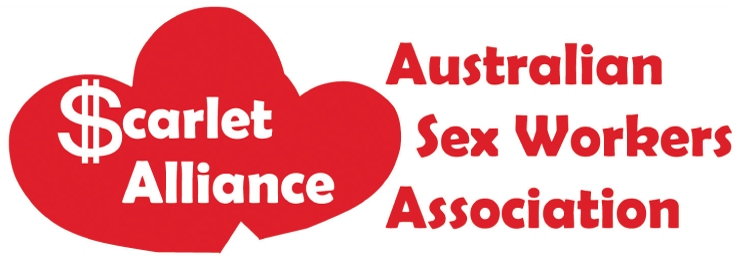This post is also available in:
![]() 简体中文 (Chinese (Simplified))
简体中文 (Chinese (Simplified)) ![]() ไทย (Thai)
ไทย (Thai) ![]() 한국어 (Korean)
한국어 (Korean)
Post Exposure Prophylaxis (PEP) is a month-long course of medication taken by HIV-negative people who may have been exposed to HIV.
If taken within 72 hours (3 days) of potential exposure to HIV, PEP can significantly reduce the chance of getting HIV after possible exposure, such as a condom breakage or stealthing. PEP reduces but does not completely remove the risk of acquiring HIV, and there is a chance that taking it will not prevent HIV infection.
PEP is a prescription medication, so you need to see a doctor to access it. You can call Healthdirect on 1800 022 222 or visit the Get PEP website for details on local PEP services across all states and territories.
PEP does not protect against other STI/BBV and should not replace safer sex practices.
How does PEP work?
In the first few hours after being exposed to HIV, the amount of virus in the body is very low. During this time, there is a window of opportunity where anti-HIV medications can specifically target HIV to stop it from multiplying. This can stop the virus from spreading in your body and successfully prevent infection.
How effective is PEP?
Studies estimate that PEP reduces HIV transmission by 81%. PEP reduces but does not remove the risk of getting HIV. There is still a chance that taking PEP will not prevent HIV infection.
What is the difference between PEP and PrEP?
PEP is a 28-day course of medication taken after (post) exposure. PrEP is taken daily on an ongoing basis so that there is already active medication in your body before any potential HIV exposure.
When to take PEP
You must start taking PEP within 72 hours of possible exposure to HIV for it to be effective. If it has been over 72 hours since the potential exposure, it is still recommended that you seek medical attention to understand what your options are.
Eligibility
Potentially being exposed to HIV in a sex work setting is not grounds alone for being prescribed PEP. The doctor or nurse will make an assessment of whether you should be prescribed PEP based on:
- What type of HIV exposure you experience (i.e. giving or receiving vaginal, anal or oral sex, injecting or other activities) and its risk of transmission.
- The HIV status of the person/s involved. If you do not know the HIV status of the person you think may have exposed you to HIV, the doctor will use HIV data to assist them in determining your need for PEP.
- Whether you currently have HIV. PEP is not effective or prescribed for people who already have HIV.
The guidelines for prescribing PEP are set by the Australasian Society for HIV, Viral Hepatitis and Sexual Health Medicine (ASHM) and intended for use by medical professionals. If you would like to learn more about the ASHM PEP guidelines, you can find them here.
Accessing PEP
While there are guidelines for PEP prescription, healthcare professionals assess whether an individual is eligible for a prescription on a case-by-case basis.
You can learn more about PEP by talking to a doctor or calling an HIV PEP hotline in your state or territory.
You can call Healthdirect on 1800 022 222 or visit the Get PEP website for details on local PEP services across all states and territories.
Some hospitals and sexual health centres will dispense PEP for free. Otherwise, you may have to pay for your prescription. If you are not eligible for Medicare, this may be more expensive.
Taking PEP
You must start taking PEP within 72 hours of a possible exposure to HIV for it to be effective. If it has been over 72 hours since the potential exposure, it is still recommended that you seek medical attention.
HIV Screening
When starting PEP, the health care professional usually takes a blood sample to test for HIV. This test is to see whether you had HIV before starting your PEP treatment. While taking PEP, you will need to have a follow-up test for HIV and other STI.
You will need another HIV test 3 months after your treatment to ensure the PEP treatment was effective.
How to take PeP
You must take the PeP medication every day for 28 days. If you miss a dose, do not double dose to catch up. Instead, take the medication as soon as possible and contact your prescribing doctor to discuss whether taking your dose late will impact the effectiveness of the treatment and your options.
If you are taking other drugs or plan to, it is recommended you discuss this with your prescribing doctor to minimise the impact this may have on your PEP treatment.
What if I have another exposure while I am taking PEP?
If you experience another potential HIV exposure while taking PEP, it is recommended that you go back to your doctor because you will need to extend the PEP course.
Side Effects
Some people notice side effects when taking PEP, and others do not. The side effects of PEP are generally mild to moderate. Side effects may include nausea, diarrhoea, headaches, fatigue, and vomiting. Usually, the side effects fade after about a week of PEP and go away after you finish your PEP treatment.
If you are experiencing side effects or have other concerns while taking PEP, speak to your prescribing doctor. Your prescribing doctor may be able to alter the PEP medications you are taking to minimise the side effects.
If you would like to know more about PEP, including how best to access PEP, contact your local sex worker organisation.
You can call Healthdirect on 1800 022 222 or visit the Get PEP website for details on local PEP services across all states and territories.
Refer to the HIV & AIDS page for more information on HIV transmission, prevention, testing and treatment.
